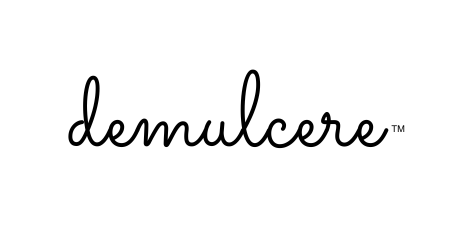
Sensitive Skin Skincare Guide: Sensitive Skin Products & Tips
Share
If you’ve ever struggled with sensitive skin—like, truly sensitive—you’re in good company. I’ve had it since birth. My baby photos show me red-faced with cradle cap, and I grew up with eczema patches that came and went like the seasons. My mom used to bathe me in colloidal oatmeal to calm my skin, which I later learned actually works (it’s a legit gentle skin soother¹).
Fast forward to my teenage years, and boom—acne entered the chat. My skin was a rollercoaster. At one point, I even dreamed of becoming a dermatologist because I was so obsessed with trying to understand my skin.
That’s when my skincare deep dive really started. I learned that for sensitive skin, less is more—and fragrance-free is best. That includes so-called “natural” fragrances like essential oils. A lot of people think essential oils are safe for sensitive skin just because they’re plant-based. But here’s the thing: they’re actually made up of dozens (sometimes hundreds!) of volatile compounds that can be irritating and sensitizing²—even if your skin doesn’t react immediately.
That’s why my Serum contains no essential oils at all. It’s fragrance-free, but still smells lightly of the nourishing ingredients it’s made from—like coffee oil. I love the subtle, natural scent, and more importantly, I love knowing it’s a face oil for sensitive skin that works without causing flare-ups. Bonus? You can even use it as a sensitive skin oil cleanser.
Once I cut out fragrances, including in things like my laundry detergent, my skin started to chill out in my 20s. I looked for gentle skin cleansers, and started avoiding anything with harsh surfactants or long lists of hard-to-pronounce ingredients. That's also when I realized that skincare for sensitive skin doesn't need to be complicated—just consistent.
Then came motherhood. Hello hormones, hello eczema flare-ups. But this time I was equipped—with knowledge and formulations. I started crafting my own sensitive skin products at home. That’s how my brand was born.
My son inherited my sensitive skin too—eczema and all. When he has a bad rash, I still bathe him in Suds, the powdered gentle cleanser I made with colloidal oatmeal, kaolin clay, and rice flour. It’s gentle enough for his delicate skin, and yes, it’s the same ingredient my mom used on me years ago.
And don’t get me started on Souffle. I originally formulated it when I was breastfeeding and needed something that was not only nourishing but edible. Yep—food-grade. I used it as a nipple balm and on my babies’ skin because I knew they’d inevitably put it in their mouths. And we still use it today—me, my kids, even my partner. It’s deeply moisturizing without any irritating ingredients, which is a big deal when you’ve got skin that reacts to everything.
Another thing I’ve learned? Skincare doesn’t stop at the bathroom mirror. Sensitive skin often reflects what’s happening inside. I drink lots of water (dry skin is not just a winter thing), eat as balanced as I can (less sugar = fewer breakouts), and I’ve noticed that when I’m super stressed or not sleeping, my eczema flares up. So I try to breathe, move, meditate—whatever I can manage in the chaos of life.
Here’s what I’ve learned after a lifetime of sensitive skin: it doesn’t need to be perfect, but it can be calm.
You don’t need a 10-step routine. You just need products that respect your skin. That’s why everything I make is rooted in simplicity, backed by science, and always formulated with sensitive skin in mind.
So if your skin needs a reset, or you’re just tired of trying things that overpromise and underdeliver, maybe it’s time to try something different. Something that’s made with intention—and lived experience.
Your skin deserves to feel soft, soothed, and safe. 💛
Quick Tips for Sensitive Skin:
- Look for fragrance-free or naturally scented products that won’t irritate
- Avoid essential oils—even “gentle” ones—if your skin is sensitive
- Use gentle cleansers like Suds with colloidal oatmeal and kaolin clay
- Try face oils for sensitive skin like Serum that double as cleansers
- Keep your routine minimal and consistent
- Hydrate, eat well, and listen to your body—it matters more than you think
References
- Colloidal oatmeal for eczema: PubMed - https://pubmed.ncbi.nlm.nih.gov/25607907
- Essential oil sensitization: Dermatitis Journal - https://pubmed.ncbi.nlm.nih.gov/22221463
- Synthetic vs natural ingredients in skincare: Harvard Health - https://www.health.harvard.edu/blog/the-truth-about-skin-care-products-2020010718602
